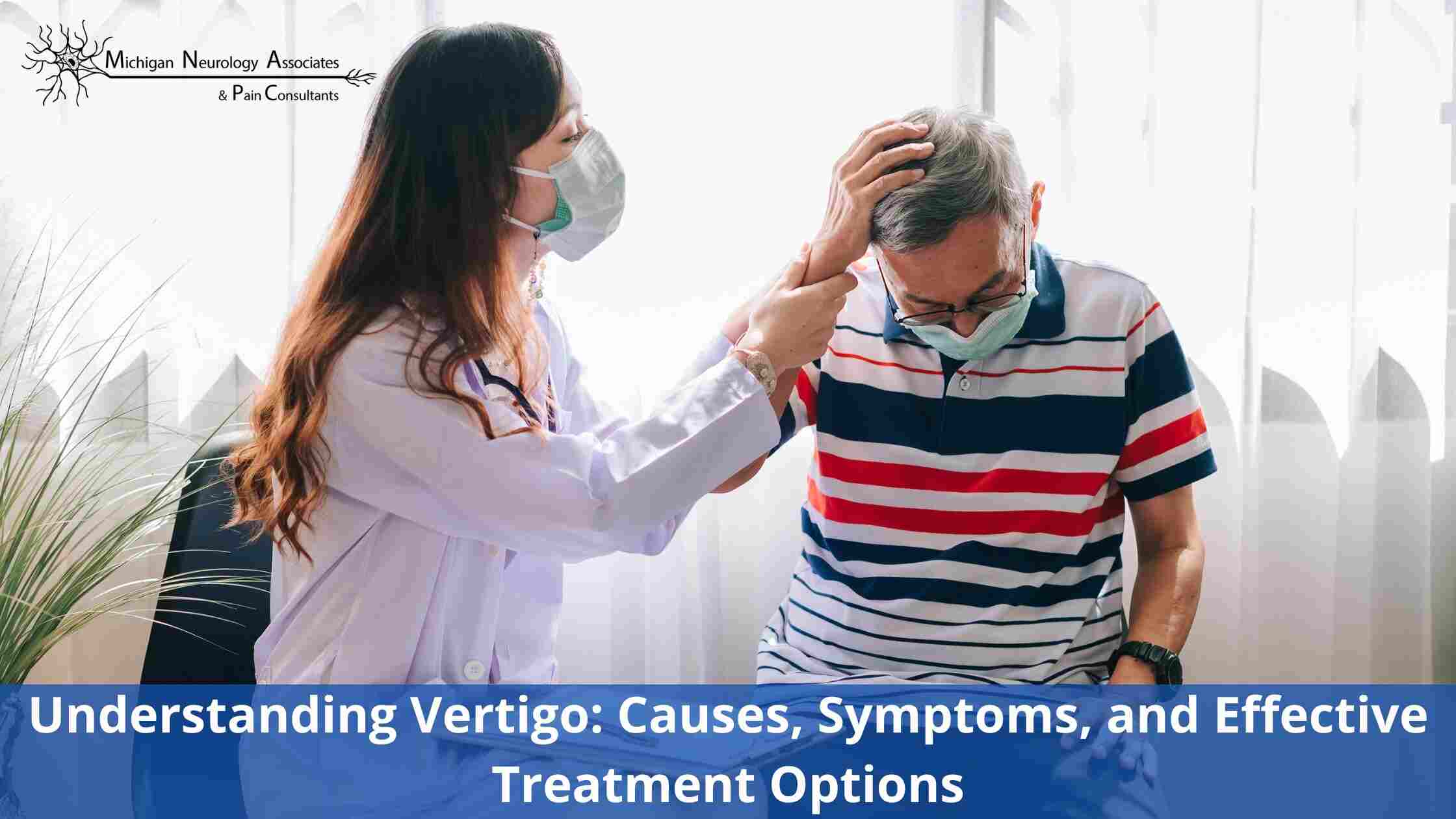



Have you been experiencing dizziness lately? It may be because you have vertigo. Vertigo is the sensation of the world around you spinning or feeling off-balance even when you are not moving. Nearly 40% of U.S. adults experience vertigo at least once in their life, with causes of vertigo being observed more among women and the elderly.
Vertigo, in most cases, is a symptomatic condition of the inner ear. However, vertigo can be a symptom of other more severe diseases too. So, if you have been having dizzy spells, you must consult your physician.
This blog discusses the crucial aspects of vertigo, including vertigo symptoms and causes, treatments, and when you must consult a physician. This will help you to make an informed decision for your unique condition.
The most common cause of vertigo is due to a disorder in the body’s vestibular system, which includes the inner ear, vestibular nerve, brain stem, and cerebellum. This system controls your balance, posture, and the body’s orientation in space. Some of the common disorders include:
BPPV occurs when the canaliths (tiny calcium crystals) dislodge from the utricle and collect inside the inner ear. You may experience mild to intense dizziness when you tip your head up or down, lie down, turn over, or sit in bed.
It occurs due to an abnormality in the inner ear part called the labyrinth. The build-up of fluid in the labyrinth causes balance disorders and impaired hearing along with a spinning sensation. This condition can cause severe dizziness and has been known to cause people to lose their balance and fall.
While vestibular neuritis affects the vestibular nerve, labyrinthitis is an infection of the labyrinth. Both conditions cause extended vertigo episodes where, besides feeling dizzy, your balance may be impacted.
In some instances, vertigo has been linked to head or neck injury or trauma, brain tumor or stroke, migraines, or certain medications.
A patient with vertigo may have several symptoms. Here are a few of them:
You may have difficulty coordinating your movements, leading to balance issues.
Also known as tinnitus, ringing in the ears is a common symptom that you may experience for vertigo caused by Meniere’s Disease or labyrinthitis.
While having a vertigo attack, you may experience sweating, which can get aggravated with increased movement.
Dizziness causes an uneasy feeling in the gut. You may feel nauseous and may even have vomiting.
Vertigo causes dizziness as the space around you starts spinning, and your sense of balance worsens.
The most common symptom is the feeling of everything around you moving. Though you may be immobile, it seems as if you also are spinning around.
Loss of balance, being unsteady on the feet, and the feeling of everything going around in circles may make it difficult to focus your eyes.
If you have Meniere’s Disease, you may also observe that your hearing in one ear is impacted.
Double vision or diplopia during vertigo may be symptomatic of other health issues besides inner ear disorders.
An inflamed labyrinth may cause vertigo. Also, due to the infection, it may be painful for you to swallow.
Vestibular neuritis may trigger debilitating dizziness, and you may even experience facial numbness or paralysis.
Certain vertigo episodes may include abnormal involuntary eye movements, also known as nystagmus, leading to blurred vision.
Disorientation during vertigo may lead to dysarthria or slurred speech, and you may experience difficulties in speaking.
Your limbs may feel weak and numb. It may also lead to ataxic gait, a walking disorder.
Medication is an effective vertigo treatment for acute episodes of shorter duration. Depending on the symptoms and causes of vertigo, your physician may prescribe medications such as antihistamines, antiemetics, antibiotics, steroids, diuretics, or other drugs for faster relief.
VRT is a specialized exercise-based therapy for individuals with recurring dizziness and balance issues caused by vestibular disorders. It is a form of physical therapy that resolves inner ear issues and restores balance. Most VRT exercises involve head maneuvers and other exercises that stimulate and strengthen the vestibular system.
It is a dizziness treatment for BPPV and involves a series of head movements that aim to move out the canaliths from the semicircular canals of the inner ear to the utricle.
For frequent and severe vertigo attacks caused by non-inner ear-related issues such as a brain injury or tumor, your physician may recommend surgery as the treatment option.
If you have been experiencing sudden, unexplained, and severe bouts of vertigo frequently for extended periods, you must seek medical help at the earliest. Vertigo is a symptom of a disorder. Consulting a physician helps you to get an accurate diagnosis and treatment for your vertigo symptoms and causes. Besides offering you faster relief, it prevents the issue from developing into a more severe condition due to a lack of proper and timely medical intervention.
Our expert team of vestibular specialists at Michigan Neurology Associates & Pain Consultants offers personalized holistic and multi-specialty treatment plans for balance disorders. Our center is equipped with comprehensive lab services and physical therapy centers that facilitate our physicians to provide you with the best treatment options for optimum results.
We have been serving the Metro Detroit Area in Clinton Township and St. Clair Shores, MI, for over two decades. For more information on the specialty services we offer, contact us today or call us at (586) 445-9900 to request an appointment.